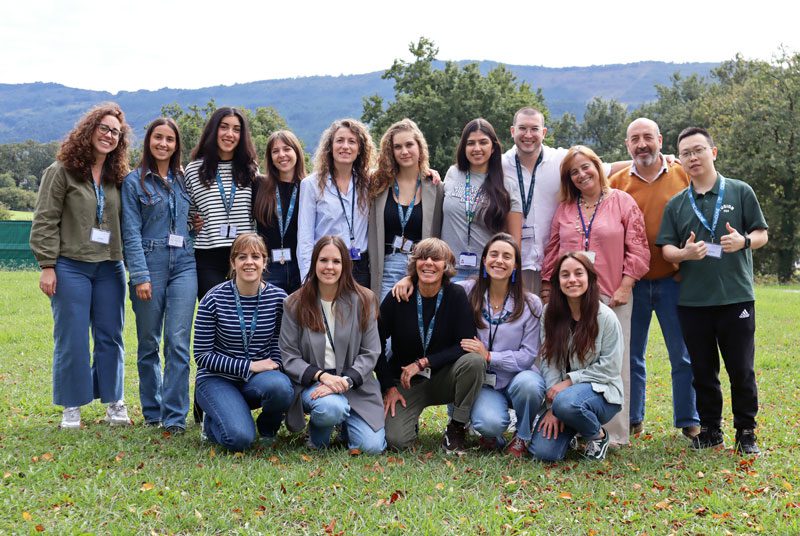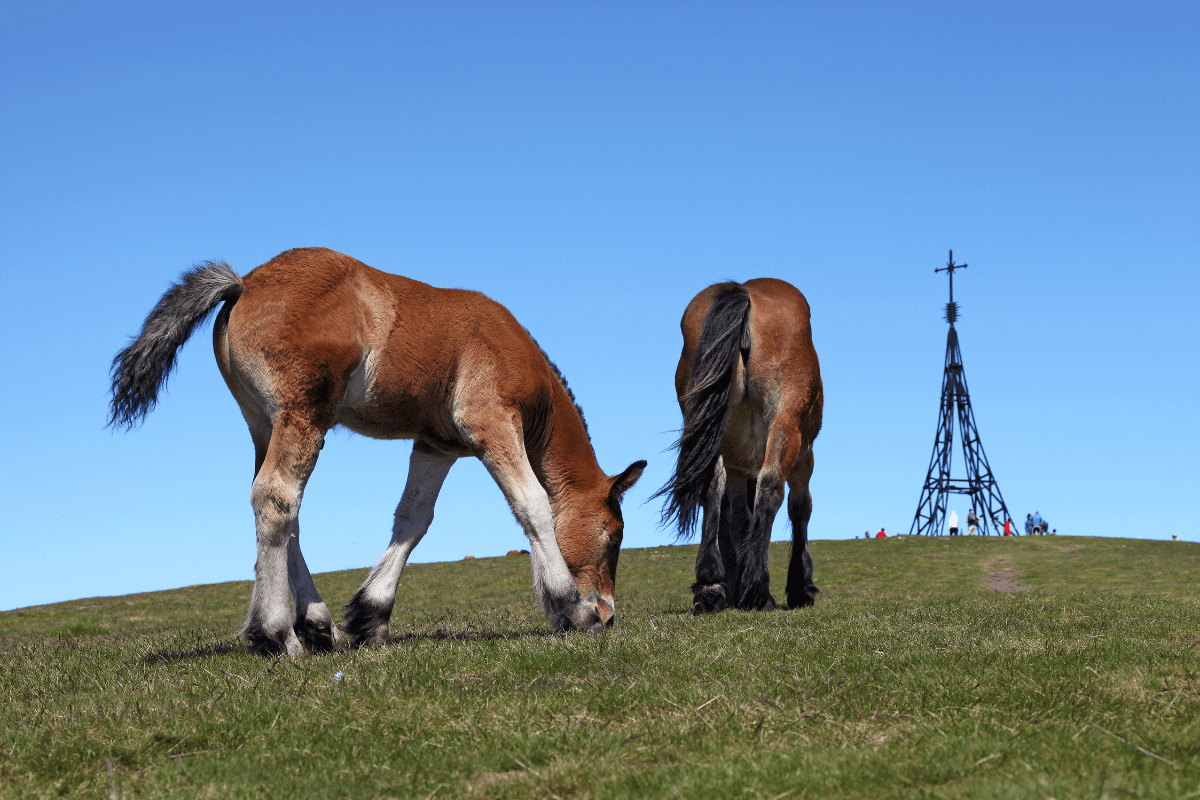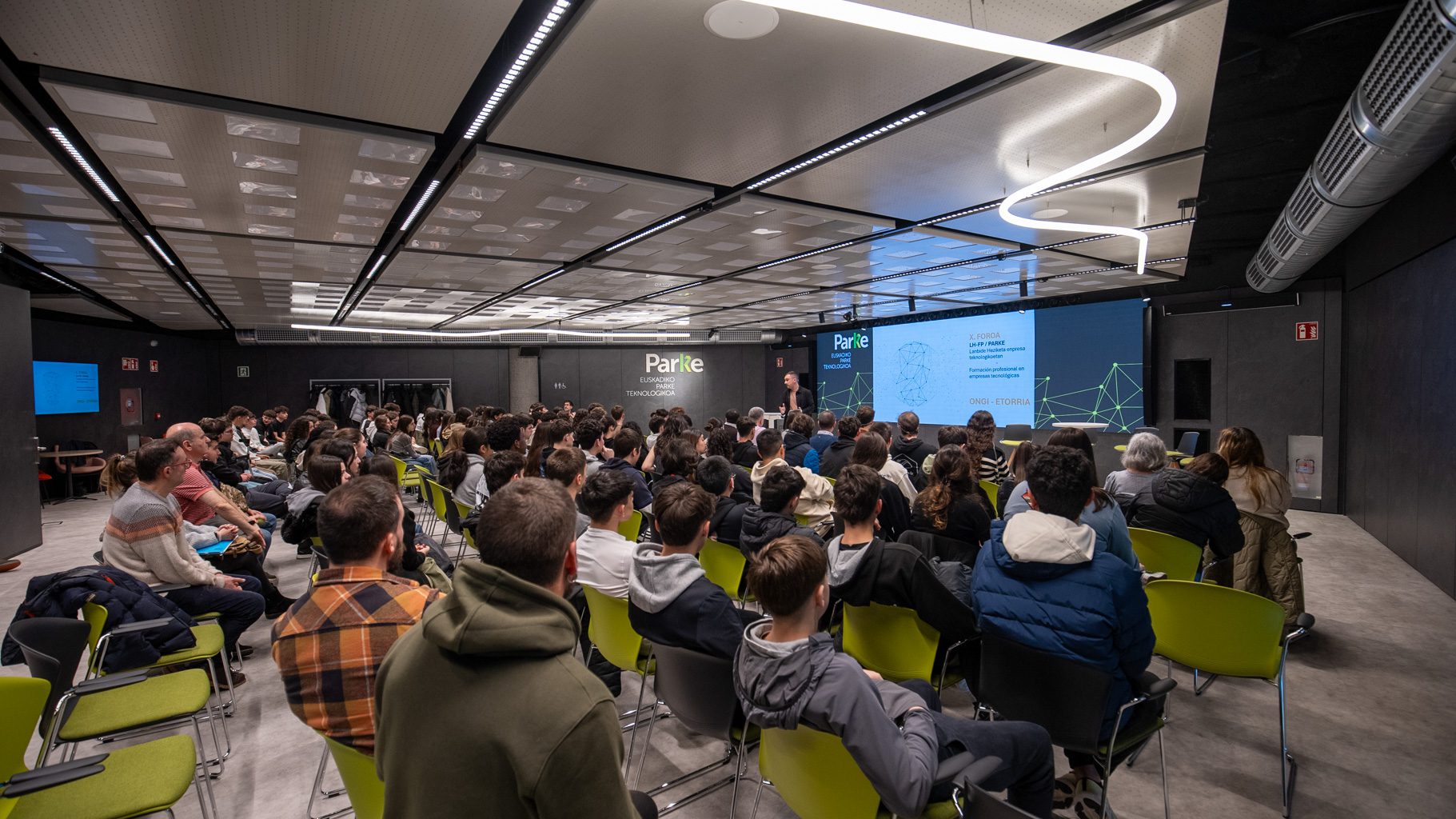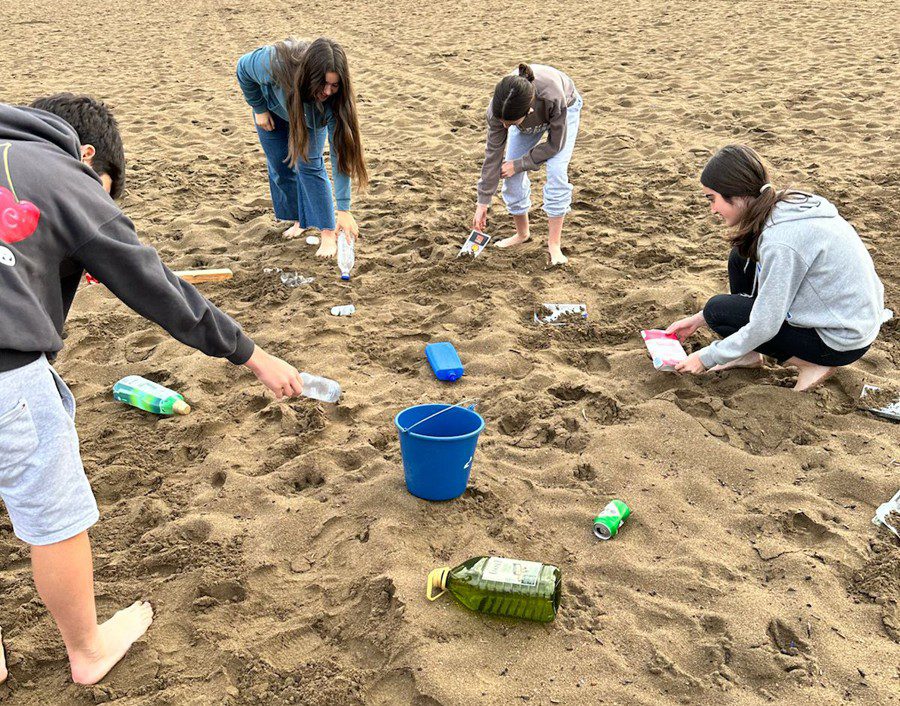Increasing forest resilience to fire through grazing and forest production
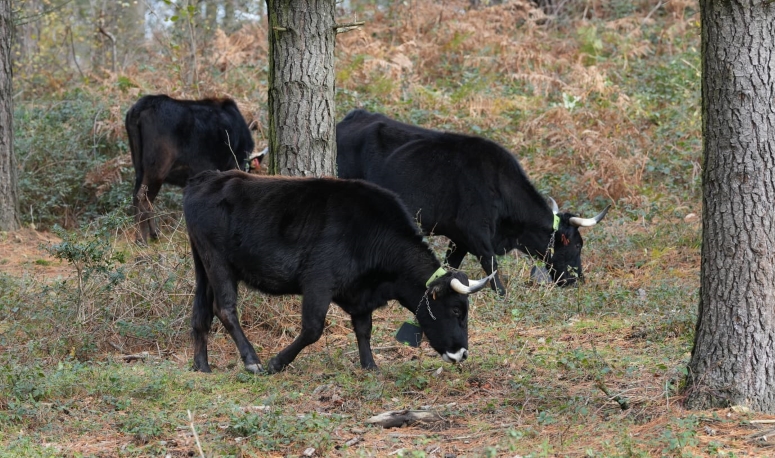
The NEIKER technology centre has presented the latest advances in the European LIFE Silfore project, which seeks to increase the resilience of forests in the face of climate change.
The project is based on the implementation of the silvopastoral system, which combines forest production and grazing on the same land, in areas of Portugal, Galicia, Asturias and the Basque Country.
It envisages a 40-60% reduction in the volume of combustible biomass and, therefore, a lower risk of fires, as well as a reduction in the carbon footprint of livestock farms.
After the conference, a visit was made to one of the demonstrations: a pine forest located in Orozko (Bizkaia) transformed into a mixed forest, in which native cows have just been introduced for grazing.
 The combination of forest production and grazing in the same territory, known as silvopastoralism, has become one of the best options for making forests more resilient to climate change. Among other benefits, this practice allows a livestock use of forests, avoiding or minimising fires, increasing biodiversity and promoting the development of the rural economy.
The combination of forest production and grazing in the same territory, known as silvopastoralism, has become one of the best options for making forests more resilient to climate change. Among other benefits, this practice allows a livestock use of forests, avoiding or minimising fires, increasing biodiversity and promoting the development of the rural economy.
Such systems, often associated with the Mediterranean landscape, have been disappearing in the Atlantic and sub-Atlantic regions despite their great potential for climate change mitigation and adaptation. However, since last year, a boost has been given to this practice in forest areas of the Atlantic and sub-Atlantic area thanks to the implementation of the LIFE Silfore project.
Led by the NEIKER technology centre, this initiative seeks to demonstrate the increase in forest resilience through silvopastoralism. To prove it, it is developing a network of 11 demonstrations or demonstration areas that combine grazing and forest production in 4 regions – Portugal, Galicia, Asturias and the Basque Country – covering 92.4 hectares.
The technology centre presented the latest advances of the project near one of the demonstrators at a technical conference, which was attended by all the partners and collaborators of the project. The event was also attended by Jorge Garbisu, Director of Agriculture of the Basque Government, Andoni Agirrebeitia, Director General of Agriculture of the Provincial Council of Bizkaia and Aitor Iza, Mayor of Orozko.
During the meeting, some of the different silvopastoral management methods, objectives, tasks to be carried out to achieve them, as well as the expected results of the project, among which is a greater resistance of the territory’s forests to fires, were presented.
“We foresee a 40-60% reduction in the volume of combustible biomass and, therefore, a reduced risk of fires, as well as a reduction in the carbon footprint of livestock farms. This will contribute to increasing the diversity of tree species, helping to maintain the stand and reducing the spread of diseases that affect trees”, explained Isabel Albizu, project coordinator and researcher at NEIKER’s Natural Resources Conservation department, during her speech.
Technical visit to the forest
After the conference, the participants made a technical visit to the Orozko demonstration area, consisting of a pine forest of radiata pine, where cattle have recently been introduced.
These cows, native to the Basque Country, were introduced into the forest on Friday 1 December. “They are 12 specimens of the terreña breed of cows that have a virtual fencing device that will make it possible to maintain ungrazed sampling areas within the enclosure in order to compare grazed areas with areas that have not been grazed”, the NEIKER researcher explained.
In addition, before the arrival of the cows, this pine forest was transformed into a mixed Atlantic forest, a task set in motion with the collaboration of the Orozko town council and the Forestry Services of the Provincial Council of Bizkaia (DFB). In Albizu’s words, “in this first phase, the density of pine trees was reduced, with the aim of accelerating the regeneration of the natural forest. To do this, pines with leafy species at their base and those that occupy a large space in the crown had to be eliminated, to allow the entry of the light necessary for the repopulation of the undergrowth”.
After cutting the pines, the branches have been stacked and chopped, distributing this material on the plot. With the extraction of the pines, the land has been made accessible for livestock, thus allowing grazing.
In addition to the Orozko demonstrator, NEIKER is also working on another demonstrator within the framework of the project, in Jauregi and Azilu (Araba), where it is implementing silvopastoralism in leafy oak forests, characteristic of the sub-Atlantic area of Euskadi, with the grazing of 30 sheep of the Sasi Ardi breed, which will enter the area during the second half of December.
In order to assess their sustainability, data will be collected on the main constituent elements of the pastoral systems: tree, soil, pasture and livestock, during 3 grazing cycles. Before the entry of the animals into both forests, the first tests have already been carried out, and soil and vegetation samples collected.
In both cases after the departure of the animals the sampling will be repeated in order to be able to correctly assess the impact of silvopastoral use. Before the animals were brought in, the first samples have already been taken; in particular, the vegetation and soil samples are currently being processed.
Local and rural development
In addition to demonstrating the increased resilience of forests to the effects of climate change, this project, which will run until 2027, will also have a positive impact on society as a whole, as forests occupy approximately 30% of the planet and act as reservoirs of diversity. They also provide a wide range of key ecosystem services, such as regulating water flow or protecting against soil erosion, among others.
In this way, the initiative will improve the economic, social and environmental profitability of forests while increasing the earnings of rural dwellers by generating employment and combating the depopulation of rural areas, reducing the risk of fires and lowering maintenance costs.
Led by Neiker, LIFE Silfore has the participation of 5 partners: Bragança Polytechnic Institute (Portugal), Galician Agency for Food Quality, Regional Service for Agri-Food Research and Development of the Principality of Asturias and the University of Santiago de Compostela. In addition, in the Basque Country, the administrations owning and managing the forest stands (Orozko Town Council and the Administrative Boards of Jauregi and Azilu for the demonstrations in the Basque Country) and the managing administrations (Directorate of Forestry of the Provincial Councils of Bizkaia and Alava) are also involved.
The initiative, which has a total budget of €2,599,081.36, is aligned with both the general objectives of the LIFE programme and the priorities of the LIFE Climate Action sub-programme.
